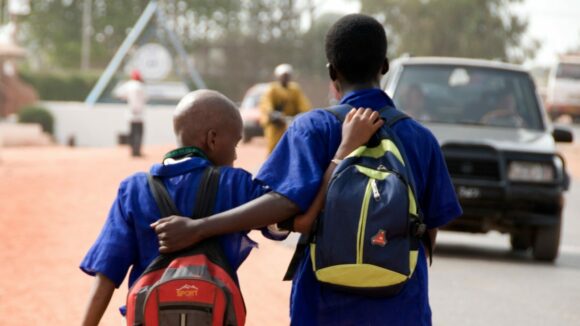Education resources
We want to ensure children with disabilities have the best start in life and can go to school alongside their peers.
We work with local and national partners to promote inclusive, quality education, giving all children the chance to go to school. Through our learning, and our work with our partners and communities, we have published the reports, guides and videos below.
Videos
Inclusive education in Senegal
This video of our pilot project in Senegal shows children with and without disabilities learning together in mainstream schools. This project was funded by Irish Aid. Images from the documentary ‘Agora braille’, directed by Mame Woury Thioubou. © 2016 www.dynamoproduction.fr
View with French subtitles
Ensuring a better start in life for children with disabilities in Malawi
In Malawi, Sightsavers is assisting 20 community-run pre-school centres to include children with disabilities, by challenging negative social attitudes and practices, and by drawing on the creativity and commitment of community members. Watch our film to find out how these centres are making a difference. This project was funded by Comic Relief and Stichting Dioraphte and is now funded by People’s Postcode Lottery and ForumSyd.
Reports and guides
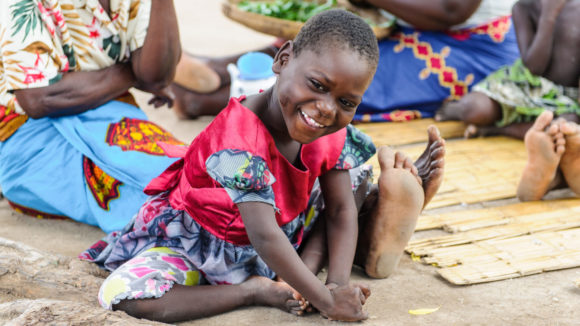
A quick guide to Sightsavers’ inclusive education work
This leaflet provides an overview of our education work which promotes inclusive, lifelong learning opportunities for all children, leaving no child behind.

Sightsavers inclusive education strategy: championing every child’s right to education
This document outlines Sightsavers’ strategic direction in education. It sets out our goals, objectives, and the system-strengthening approach that will enable us to achieve them.
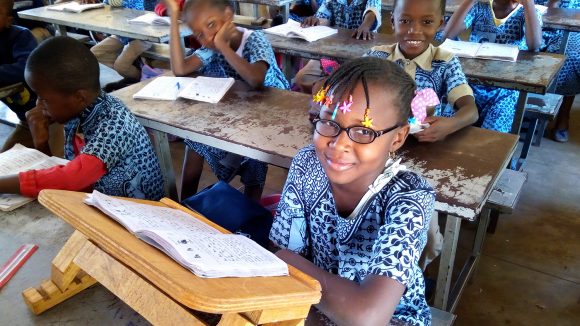
Promoting inclusive education for girls and boys with disabilities in West and Central Africa policy brief summary
To ensure every child has access to quality education, this policy briefing recommends all stakeholders work together to reform education systems.
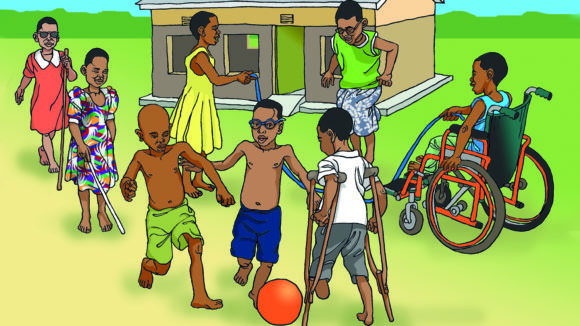
Training flipchart for the inclusion of children with disabilities in pre-schools in Malawi
A course designed for caregivers on the inclusion of young children with disabilities in community-based childhood care centres in Malawi.
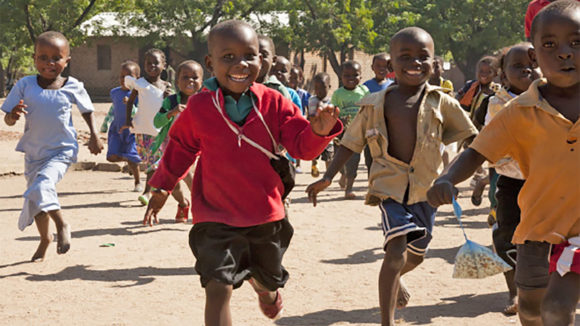
Inclusive education for children with disabilities: teacher training pack
The purpose of this training pack is to develop the capacity of teachers to make their schools and classrooms more inclusive for children with disabilities.

Inclusive teaching and learning for children with visual impairments
This guide identifies ways in which children with visual impairments (children who are blind and children with low vision) can be included in mainstream schools in sub-Saharan Africa.
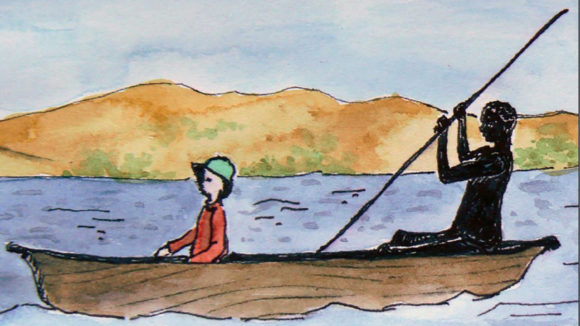
Albinism guide
A guide for teachers and parents of children with albinism, in English and French.
Learn how we’re supporting children to learn
Inclusive educationBlogs on inclusive education
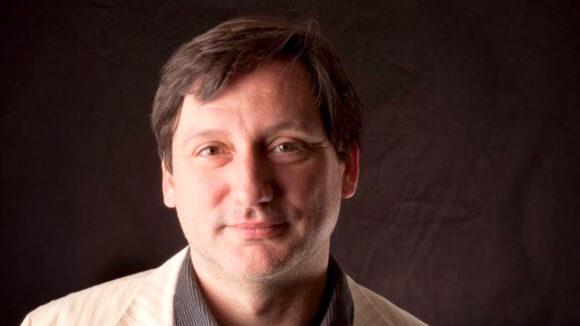
The key to inclusive education is engaging organisations of people with disabilities
Collaborating with organisations of people with disabilities (OPDs) on our inclusive education projects has earned the Sightsavers-led Inclusive Futures consortium a Zero Project Award in 2024.
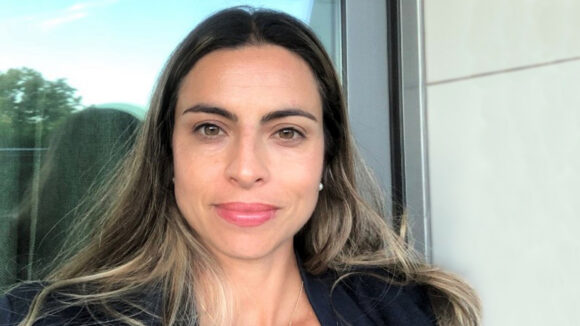
How inclusive education can create a more equal and sustainable future
As learners with disabilities are disproportionately affected by global crises such as climate change, we're urging governments to build more resilient education systems for everyone.
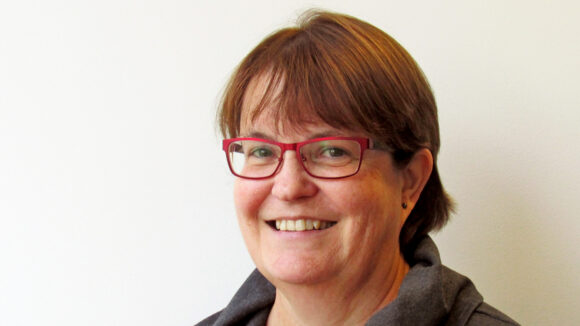
Making assessments more accessible for children with disabilities
How an evaluation tool to assess children’s development has been adapted for young children with disabilities in Kenya.
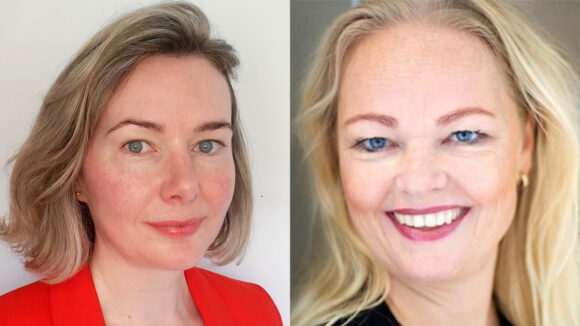
On data and disability: piloting the Child Functioning Module in Nigerian schools
Sightsavers’ Liesbeth Roolvink and Gillian Mackay share learnings from the SMILE project in Nigeria, where a new questionnaire is being used in schools to assess children’s educational needs.

Did world leaders do their homework to transform education?
Sightsavers’ Mariana Rudge shares how world leaders at the Transforming Education Summit responded to our call to take action on inclusive education.
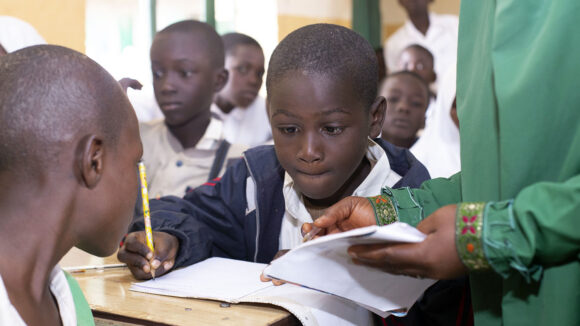
Transforming education: how we’re doing our homework too
Sightsavers’ Liesbeth Roolvink shares the work we’re doing in programme countries to help transform education systems so that all children can go to school.
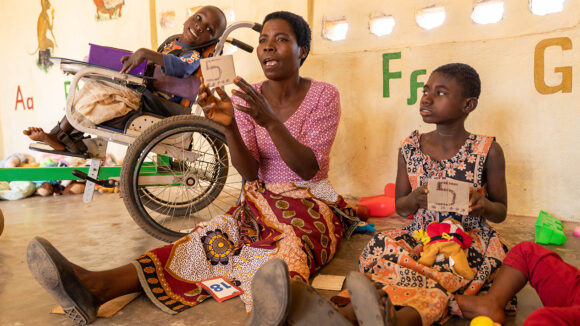
Transforming Education Summit: our call for world leaders
Sightsavers’ inclusive education policy officer Takyiwa Danso explains why we’re calling on global leaders to protect the rights of children with disabilities.
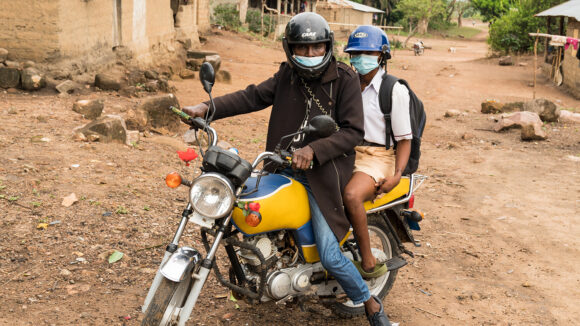
We must include students with disabilities in education transformation
Sightsavers’ Gertrude Oforiwa Fefoame shares why inclusion and diversity must be at the heart of discussions at the UN's Transforming Education Summit.
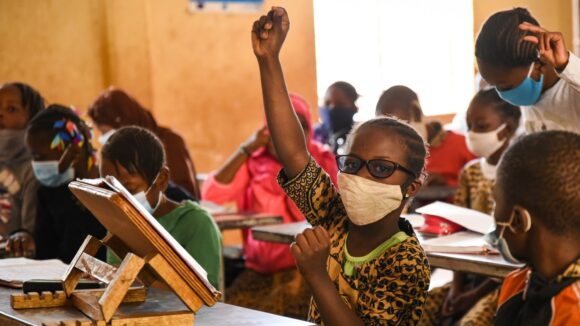
Global Education Summit: what did Sightsavers’ Equal World campaign call for?
As leaders from more than 80 countries gathered at the summit, Sightsavers highlighted the need for policy commitments on the rights of children with disabilities.
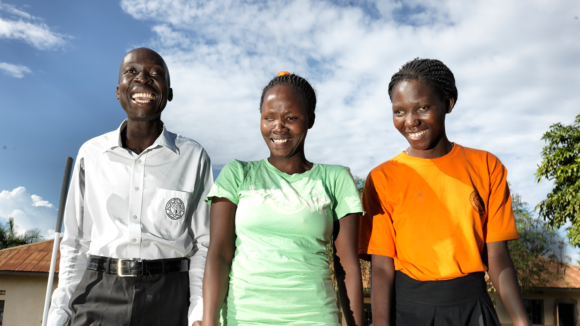
Building back inclusively after COVID-19
COVID-19 has shown the need for systems to accommodate the new risks we face. Why not take the opportunity to build them back in a way that is inclusive?
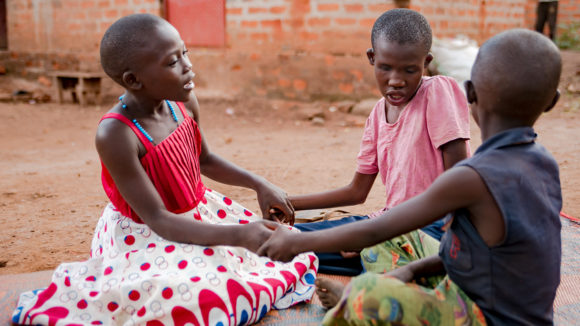
Supporting youth with deafblindness in Uganda
Alice Nabbanja from Sense International explains how the organisation has been working with Sightsavers in Uganda supporting young people with deafblindness and complex disabilities.

“Grace gave me the courage to empower people with disabilities”
Disability ambassador Gertrude Oforiwa Fefoame remembers Grace Preko, her friend, sister and role model who showed her there was life after blindness.
